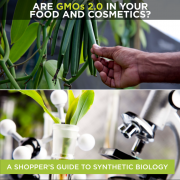Civil society: “Oil companies should not author IPCC report”
Submitted by Anonymous on
12 May 2017
On 27 April 2017, 108 civil society organizations signed a letter requesting the IPCC to reconsider its list of authors for the upcoming Special Report on keeping global warming below 1.5°C. Two senior employees from major oil companies were selected among the authors for the Report, which the letter considers a major hurdle to make a fair report, and a violation of the IPCC's conflict of interest policy.










